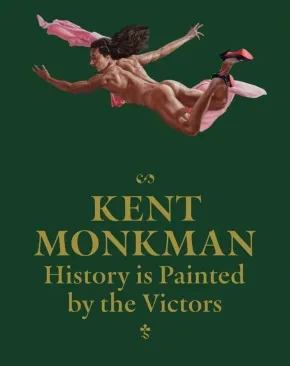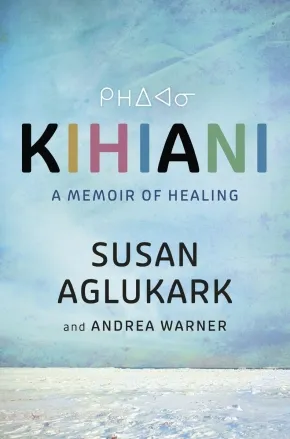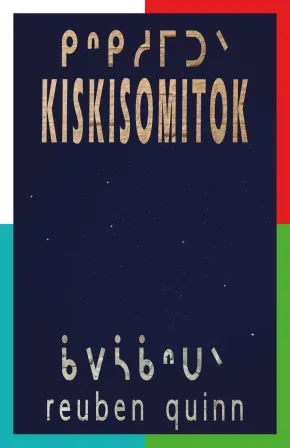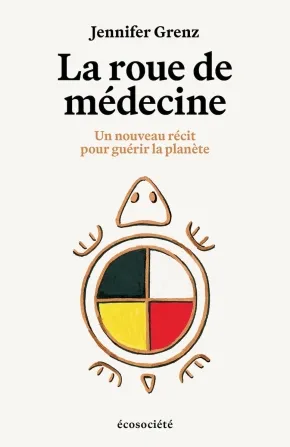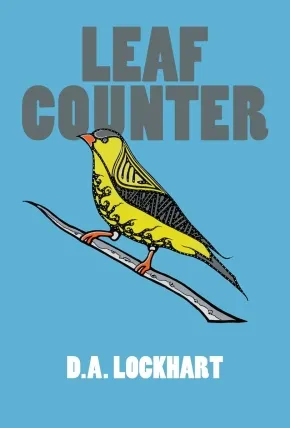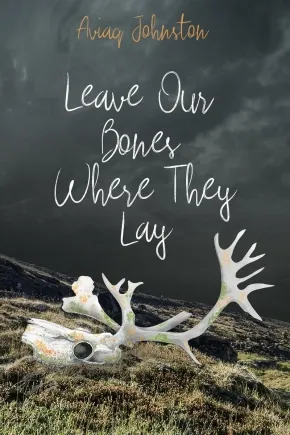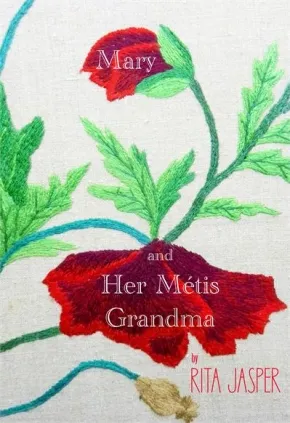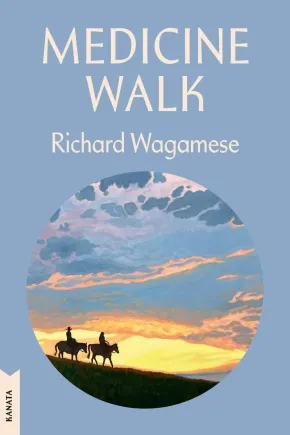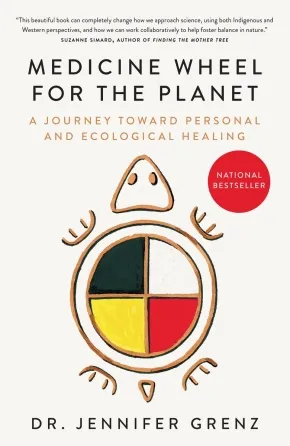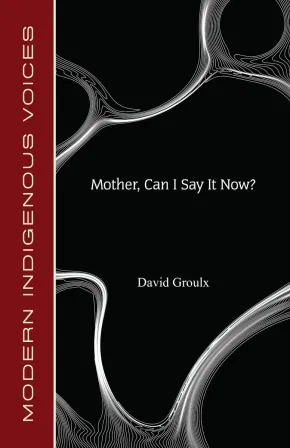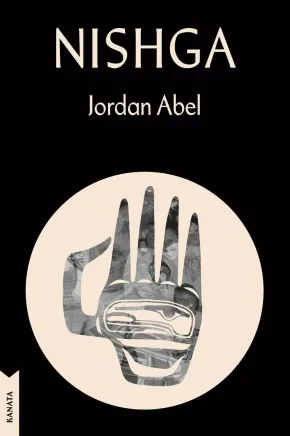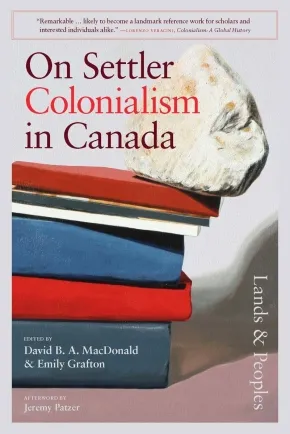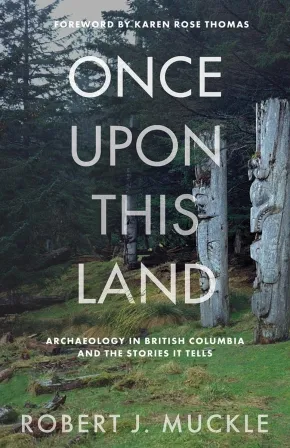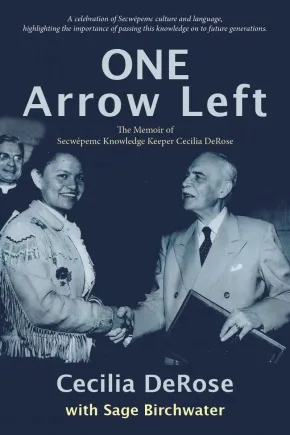
Indigenous Peoples in Canada
61
-
75
of
1103 Results;
Sort By
Go To
of 74
Kent Monkman: History is Painted by the Victors
$74.95
Artists:
Editors:
Format:
Hardcover
Text Content Territories:
Indigenous Canadian; First Nations; Cree (Nehiyawak); Fisher River Cree (Ochekwi-Sipi);
Reading Level: N/A
ISBN / Barcode: 9781636811543
Synopsis:
Synopsis:
The renowned Cree artist unmasks a whitewashed, Eurocentric history through provocative paintings full of sexuality and drama
One of Canada’s most renowned artists, interdisciplinary Cree artist Kent Monkman challenges the art historical narrative of settler cultures that colonized First Peoples from North America. He incorporates influences from the canon of European and Euro-American painting, reframing historical, contemporary and speculative future Indigenous experiences. Taking inspiration from Western artists such as George Catlin, as well as from the Old Masters, Monkman’s monumental history paintings feature white colonizers in violent conflict with Indigenous people. The depictions range from early colonial encounters to modern and contemporary clashes between Indigenous communities and uniformed police or clergy. In borrowing the visual language of his oppressors, Monkman reclaims the narrative written by Western art history about the brutalization and cultural genocide carried out against Indigenous North American communities.
History is Painted by the Victors accompanies the artist’s first major exhibition in the United States. The catalog gathers rich analysis of Monkman’s art from prominent scholars, expanding our understanding of his oeuvre and offering new insight via queer theory, historical and contemporary contexts, visual analysis and lived experience.
Kent Monkman was born in 1965 in Ontario, Canada and is a member of Fisher River Cree First Nation in Treaty 5 Territory. Monkman’s works have been exhibited at the Metropolitan Museum of Art, Montreal Museum of Fine Arts, Hayward Gallery, Philbrook Museum of Art, Palais de Tokyo and many more. He is the author of two bestselling novels, The Memoirs of Miss Chief Eagle Testickle, Volumes 1 and 2, which are based on his gender-fluid alter ego who often appears in Monkman’s work as a time-traveling, shape-shifting, supernatural being who reverses the colonial gaze to challenge received notions of history and Indigenous peoples. He lives and works in New York City and Toronto.
This book was published in conjunction with Denver Art Museum; Montreal Museum of Fine Arts.
Additional Information
176 pages | 9.50" x 12.00" | 86 Illustrations | Hardcover
Kihiani: A Memoir of Healing
$36.99
Format:
Hardcover
ISBN / Barcode: 9781443472944
Synopsis:
Synopsis:
Profoundly honest and moving, Kihiani is the uplifting story of an Inuk artist’s journey to healing and self-discovery
Born in Fort Churchill, Manitoba, but raised in Arviat, a predominantly Inuit community on the western edges of Hudson Bay, Susan and her six siblings grew up in a humble but loving home. But while living in Rankin Inlet, when she was eight years old, Susan’s life was disrupted by a life-changing event, a distinct separation that created a schism inside her for many years and from which she continues to heal.
At fifteen, she started writing poems that spilled out of her, and when Susan had the choice to leave her community, she grabbed it like a lifeline. Eventually, Susan was approached by a producer at CBC who was making a compilation album of Arctic artists and years later signed with a major label for her third album, This Child.
The disruption and milestones, the turmoil and joy, the devastation and healing—this is Susan Aglukark’s story of discovering her Inuk self.
Additional Information
272 pages | 6.00" x 9.00" | Hardcover
kiskisomitok ᑭᐢᑭᓱᒥᑐᐠ
$19.95
Format:
Paperback
Reading Level: N/A
ISBN / Barcode: 9781772016444
Synopsis:
Synopsis:
In ᑭᐢᑭᓱᒥᑐᐠ kiskisomitok: ᓀᐦᐃᔭᐤ to remind each and one other, nêhîyaw educator ᑳᐯᓵᑳᐢᑌᐠ reuben quinn uses the spirit marker writing system as a foundation for teaching ᓀᐦᐃᔭᐁᐧᐃᐧᐣ nêhîyawewin. The spirit marker writing system holds forty-four spirit markers and fourteen minor spirit markers. Some people call that system the star chart. Each spirit marker holds a law. These laws are meant to guide us in ways that support us in life. They are meant to guide us in ways of living well with the elements: fire, land, water, and air. The spirit markers remind us that these elements form the foundations of all relationships on earth.
Educator Information
In ᑭᐢᑭᓱᒥᑐᐠ kiskisomitok: ᓀᐦᐃᔭᐤ, reuben quinn uses the spirit marker writing system as a foundation for teaching ᓀᐦᐃᔭᐁᐧᐃᐧᐣ nêhîyawewin.
Additional Information
96 pages | 5.51" x 8.50" | Paperback
La roue de médecine: Un nouveau récit pour guérir la planète
$29.00
Format:
Paperback
Text Content Territories:
Indigenous Canadian; First Nations; Salish; Interior Salish; Nlaka'pamux (Thompson);
Reading Level: N/A
ISBN / Barcode: 9782898570674
Synopsis:
Synopsis:
Le récit inspirant d’une chercheuse et écologiste autochtone qui a cherché à réconcilier sa tête (science occidentale) et son cœur (vision du monde indigène) pour trouver une voie plus juste vers la guérison écologique.La roue de médecine raconte le voyage de réconciliation personnelle et écologique vécu par la chercheuse autochtone Jennifer Grenz dans son travail sur la restauration écologique. Elle montre qu’il est possible de créer des ponts entre les savoirs autochtones et occidentaux sans tomber, pour les populations autochtones elles-mêmes, dans le piège de l’assimilation par l’inclusion. Un récit qui démontre qu’il n’est pas nécessaire de se couper de ses valeurs, de sa spiritualité, de sa vie relationnelle et de son engagement envers la communauté, mais qu’on gagne au contraire à les placer au cœur de son métier. Éloquent, inspirant et dérangeant, ce bestseller enfin traduit en français jette les bases d’une écologie autochtone et nous rappelle qu’une multiplicité de visions du monde est nécessaire pour sauvegarder notre planète.
Educator Information
This book is available in English: Medicine Wheel for the Planet: A Journey toward Personal and Ecological Healing
Additional Information
Paperback
Leaf Counter
$24.95
Format:
Paperback
Text Content Territories:
Indigenous Canadian; First Nations; Lenape (Delaware);
Reading Level: N/A
ISBN / Barcode: 9781997580034
Synopsis:
Synopsis:
Flow into a new season in one of Canada’s most celebrated literary landscapes, with Leaf Counter. A lyric decolonial romp through the Ontario’s famed Prince Edward County, Aginjibagwesi (Spinus tristis) draws us through the poetics of the land and the struggles of the poet as decolonizer in this new epic border-crossing collection. Golden witness to the timelessness of land and spirits, Leaf Counter criss-crossed the lands around Ameliasburgh, its ghosts, heroes, and even the poets of Purdy’s A-Frame. Leaf Counter knows of sorrow, struggle, and wends a tale in a braided narrative as he scans "light and steeple” and sees timeless men at the centre and edges of the order of things, Simon Girty, Al Purdy, Charles Bukowski, and even Bret Hart, move and shift in time and place. Leaf Counter is our celestial, Lenape, winged guide of legend and myth. And through his spring enumeration of all things, we garner an understanding of the famed Canadian poet Al Purdy and the lands that he grew from. Witness the collapse of the old repressive order through the eyes of the poet and movements of the mighty little bird.
Additional Information
148 pages | 6.00" x 9.00" | Paperback
Leave Our Bones Where They Lay
$19.95
Format:
Paperback
Text Content Territories:
Indigenous Canadian; Inuit;
Reading Level: N/A
ISBN / Barcode: 9781772275896
Synopsis:
Synopsis:
Every solstice, Jupi—just as his father did before him, and his before him—must make a nearly impossible pilgrimage to light an oil lamp at the base of a remote cliff. There he must wait for Kipik, an ancient being who has bound Jupi’s family to a mammoth task: share a story every visit that appeases the fickle Kipik, or suffer unthinkable consequences.
For decades, Jupi has made the trek, growing grey and exhausted carrying this burden. Nearing the end of his life, Jupi knows he must name a successor, someone from his bloodline who can carry this weight and pass it on to future generations. But Jupi’s life has not been easy. His three children, one deceased, one incarcerated, one addicted, are not suitable successors. So Jupi must connect with a granddaughter he barely knows, whose language he barely speaks, and convince her to carry the weight of their family, perhaps their whole community, for the rest of her life.
This moving collection explores shifting definitions of what it means to be accountable to others, how family and community are defined, and how the spirits and demons of the past (both personal and legendary) are very much alive today.
Additional Information
136 pages | 6.00" x 9.00" | b&w illustrations | Paperback
Mary and her Métis Grandma
$24.95
Format:
Paperback
Text Content Territories:
Indigenous Canadian; Métis;
Reading Level: N/A
ISBN / Barcode: 9781998779895
Synopsis:
Synopsis:
A gripping work of auto-fiction / biography and memoir resulting in historical accountability. Divided into two parts; starting at the turn of the 20th century leading into the 1980's.
Filled with wisdom, grit and honesty, this is the journey of a Métis teenager overcoming personal grief, witnessing the pain of others, and experiencing the healing power of a Grandma’s love.
At times harrowing and instead of succumbing to self-pity Mary will rise above her presumed narrative with courage and love as her Grandma takes Mary under her wing to guide her into the mature woman she will become.
Educator Information
To learn more about this work, such as how the duck character and situation were developed, visit the author's website: https://ritajasperart.com/2025/10/14/the-bus-ride-was-just-ducky/.
Additional Information
250 pages | 5.50" x 8.50" | Paperback
Medicine Walk: Kanata Classics Edition
$22.00
Format:
Paperback
Text Content Territories:
Indigenous Canadian; First Nations; Anishinaabeg; Ojibway;
ISBN / Barcode: 9780771023521
Synopsis:
Synopsis:
By the celebrated author of Canada Reads Finalist Indian Horse, a stunning new novel that has all the timeless qualities of a classic, as it tells the universal story of a father/son struggle in a fresh, utterly memorable way, set in dramatic landscape of the BC Interior. For male and female readers equally, for readers of Cormac McCarthy, Thomas King, Russell Banks, and general literary.
Franklin Starlight is called to visit his father, Eldon. He's sixteen years old and has had the most fleeting of relationships with the man. The rare moments they've shared haunt and trouble Frank, but he answers the call, a son's duty to a father. He finds Eldon decimated after years of drinking, dying of liver failure in a small town flophouse. Eldon asks his son to take him into the mountains, so he may be buried in the traditional Ojibway manner.
What ensues is a journey through the rugged and beautiful backcountry, and a journey into the past, as the two men push forward to Eldon's end. From a poverty-stricken childhood, to the Korean War, and later the derelict houses of mill towns, Eldon relates both the desolate moments of his life and a time of redemption and love and in doing so offers Frank a history he has never known, the father he has never had, and a connection to himself he never expected.
A novel about love, friendship, courage, and the idea that the land has within it powers of healing, Medicine Walk reveals the ultimate goodness of its characters and offers a deeply moving and redemptive conclusion.
Wagamese's writing soars and his insight and compassion are matched by his gift of communicating these to the reader.
Reviews
“In Medicine Walk, Wagamese manages the nuances of betrayal and redemption with uncommon artistry. It is a breathtaking novel of sorrow, hope and polished steel.” – Thomas King
“A deeply felt and profoundly moving novel, written in the kind of sure, clear prose that brings to mind the work of the great North American masters; Steinbeck among them. But Wagamese's voice and vision are also completely his own, as is the important and powerful story he has to tell.” – Jane Urquhart
“Medicine Walk recounts the mythic journey of an estranged father and son who are searching for reconciliation and love. Richard Wagamese’s novel renders the Canadian wilderness with staggering insight and beauty. The same can be said for his understanding of the fragility, wildness and resilience of the human heart. Magnificent.” – Lisa Moore
“Medicine Walk is a masterpiece, a work of art that explores human interconnectedness with a level of artistry so superb that the personal becomes eternal.” – National Post
“A moving story…. Wagamese balances the novel’s spiritual and political subtexts with sly humour, sharp, believable dialogue and superb storytelling skills. Medicine Walk is a major accomplishment from an author who has become one of Canada’s best novelists.” – Toronto Star
“This is very much a novel about the role of stories in our lives, those we tell ourselves about ourselves and those we agree to live by…. Wagamese understands that the stories we don’t tell are as important as the ones we do….But Medicine Walk is also testament to the redemptive power of love and compassion.” – Globe and Mail
“One of the finest novels of the year…. Medicine Walk is not only a graceful book, it is a novel of grace, of coming to terms with hidden truths, of coming to know the secrets behind forbidding appearances, of finding the humanity within strangers.” – Vancouver Sun
“An essential read…. Superbly written.” – Now Magazine (NNNN)
Educator & Series Information
This edition of Medicine Walk is part of the Kanata Classics series, which celebrates timeless books that reflect the rich and diverse range of voices in Canadian literature.
Grades 10-12 BC English First Peoples resource for units on Childhood, Place-Conscious Learning, and Family.
Additional Information
256 pages | 5.50" x 8.25" | Paperback
Medicine Wheel for the Planet: A Journey toward Personal and Ecological Healing (PB)
$23.00
Format:
Paperback
Text Content Territories:
Indigenous Canadian; First Nations; Salish; Interior Salish; Nlaka'pamux (Thompson);
Reading Level: N/A
ISBN / Barcode: 9781039006034
Synopsis:
Synopsis:
"This beautiful book can completely change how we approach science, using both Indigenous and Western perspectives, and how we can work collaboratively to help foster balance in nature." —Suzanne Simard, bestselling author of Finding the Mother Tree
For readers of Braiding Sweetgrass: Future-saving insights and approaches to science and ecology using both Indigenous and Western perspectives.
A farm kid at heart, and a Nlaka'pamux woman of mixed ancestry, Dr. Jennifer Grenz always felt a deep connection to the land. However, after nearly two decades of working as a restoration ecologist in the Pacific Northwest, she became frustrated that despite the best efforts of her colleagues and numerous volunteers, they weren't making the meaningful change needed for plant, animal and human communities to adapt to a warming climate. Restoration ecology is grounded in an idea that we must return the natural world to an untouched, pristine state, placing humans in a godlike role—a notion at odds with Indigenous histories of purposeful, reciprocal interaction with the environment. This disconnect sent Dr. Grenz on a personal journey of joining her head (Western science) and her heart (Indigenous worldview) to find a truer path toward ecological healing.
In Medicine Wheel for the Planet, building on sacred stories, field observations and her own journey, Dr. Grenz invites readers to share in the teachings of the four directions of the medicine wheel: the North, which draws upon the knowledge and wisdom of elders; the East, where we let go of colonial narratives and see with fresh eyes; the South, where we apply new-old worldviews to envision a way forward; and the West, where a relational approach to land reconciliation is realized.
Eloquent, inspiring and disruptive, Medicine Wheel for the Planet circles toward an argument that we need more than a singular worldview to protect the planet and make the significant changes we are running out of time for.
Reviews
"Grenz shares her ancestral Nlaka'pamux wisdom that respect, relationship and reciprocity with all life is essential in healing the land. In telling her stories, she demonstrates how these fundamental principles underlie the good work. She also teaches us that our ability to understand nature and our success at stewardship requires that we lead with our hearts and keep our beginner’s curiosity open. When we do this, we have unlimited capacity to heal. This beautiful book can completely change how we approach science, using both Indigenous and Western perspectives, and how we can work collaboratively to help foster balance in nature.” —Suzanne Simard, author of Finding the Mother Tree: Discovering the Wisdom of the Forest
“Rooted in both Indigenous and Western ways of understanding and doing science, Medicine Wheel for the Planet challenges the simplistic, dichotomous thinking that has led well-meaning environmentalists astray for too long. In a book that is part primer in ecology, part memoir, and part manifesto, Jennifer Grenz movingly shares her own process of learning and unlearning, of connecting with traditional knowledge and practices to help unearth future-saving insights and approaches — and by doing so, generously invites the reader to undertake a similar transformation. Wise, humble, provocative, brave, and beautifully written, this book is a triumph. Read it and let it alter and expand how you see the world and your place and role within it." —Astra Taylor, author of The Age of Insecurity: Coming Together as Things Fall Apart
“Deeply moving and compelling, Medicine Wheel for the Planet weaves a powerful story about the limitations of restoration ecology and a Western lens, and illuminates a path forward using the power of Indigenous and reciprocal ways of being. An imperative read for all Canadians.” —Angela Sterritt, author of Unbroken: My Fight for Survival, Hope, and Justice for Indigenous Women and Girls
“In this thoughtful and heartfelt book, Dr. Grenz challenges us to reflect on how – despite the massive contributions of Western science – we humans are impacting the Earth and all life on our planet in problematic ways, most recently evident in the ongoing global climate crisis. Guiding us through the medicine wheel concept, she illuminates the deep experiences of the First Peoples, often conveyed through stories, that can inspire us to be better relatives, reminding us to focus our time and energy on healing the Earth. This is a revelatory, immersive work that illustrates, with respect and gratitude, the meaningful role that all systems of knowledge play in connecting ‘our heads and our hearts’ for a healthier planet.” —Nancy J. Turner, Distinguished Emeritus Professor in Environmental Studies, University of Victoria, author/editor of many books including The Earth’s Blanket, Member of the Order of Canada, the Order of British Columbia and winner of Canadian Botanical Association Lawson Medal
“Medicine Wheel for the Planet transported me gently into the dynamic world of plants and trees and offers a powerful viewing lens—one derived from Indigenous storytelling as well as from Western science. Dr. Grenz helped me to see research methods through a more holistic perspective, and skilfully shows what science could accomplish if untangled from the rigid rules of our dominant culture. With patience and humility, she convinced me that if we take the time to look and listen differently, the land will offer us crucial lessons in healing that would otherwise be left unseen and unheard.” —Dr. Jane Philpott, author of Health for All: A Doctor's Prescription for a Healthier Canada
Educator Information
This book is available in French: La roue de médecine: Un nouveau récit pour guérir la planète
Additional Information
280 pages | 5.18" x 8.00" | Paperback
Mother Earth: My Favourite Artist Teacher Lesson Plan
$7.99
Artists:
Text Content Territories:
Indigenous Canadian;
ISBN / Barcode: 9781778540622
Synopsis:
Synopsis:
A teacher lesson plan to further explore the book, Mother Earth: My Favourite Artist. May include comprehension questions, group activities, conversation starters, quizzes, language arts activities, and colouring pages.
Have you ever considered Mother Earth to be an artist? A shiny rock, the guiding tracks of a bird, a colourful sunset—what beauty do you see on Mother Earth?
Award-winning Indigenous author, CBC journalist, and Poet Laureate of Saskatchewan (2021-2023) Carol Rose GoldenEagle brings readers a radiant tribute to the artwork within the everyday. Paired with stunning illustrations by Hawlii Pichette, Mother Earth: My Favourite Artist encourages us to share in the simple wonder of nature, and honour the precious magnificence of Mother Earth and all of our relatives.
Educator Information
Find the accompanying children's book here: Mother Earth: My Favourite Artist
Additional Information
15 pages | 8.50" x 11.00" | Loose-Leaf Packet
Mother, Can I Say It Now?
$19.95
Format:
Paperback
Text Content Territories:
Indigenous Canadian; First Nations;
Reading Level: N/A
ISBN / Barcode: 9781772312447
Synopsis:
Synopsis:
Mother, Can I Say it Now? is a compelling collection of poems that delve into the beauty and depth of Indigenous poetry. It reflects the essence of everyday life and captures the spirit of belonging. The poems in this collection explore themes of identity, culture, and connection to the land. They offer a unique perspective that resonates with readers from all walks of life. From The Next Pretend-Indian to Things Abandoned in the Night, each poem tells a story that is both compelling and thought-provoking. These captivating verses are a tribute to the resilience and creativity of Indigenous voices.
Educator & Series Information
This book is part of the Modern Indigenous Voices series.
Additional Information
88 pages | 5.50" x 8.50" | Paperback
Nishga: Kanata Classics Edition
$22.00
Format:
Paperback
Text Content Territories:
Indigenous Canadian; First Nations; Nisga'a;
Reading Level: N/A
ISBN / Barcode: 9780771023491
Synopsis:
Synopsis:
Part of the inaugural Kanata Classics list, with a new introduction by David Chariandy, NISHGA is a groundbreaking, deeply personal, and devastating autobiographical meditation that attempts to address the complicated legacies of Canada’s residential school system and contemporary Indigenous existence.
As a Nisga'a writer, Jordan Abel often finds himself in a position where he is asked to explain his relationship to Nisga'a language, Nisga'a community, and Nisga'a cultural knowledge. However, as an intergenerational survivor of residential school--both of his grandparents attended the same residential school--his relationship to his own Indigenous identity is complicated to say the least.
NISHGA explores those complications and is invested in understanding how the colonial violence originating at the Coqualeetza Indian Residential School impacted his grandparents' generation, then his father's generation, and ultimately his own. The project is rooted in a desire to illuminate the realities of intergenerational survivors of residential school, but sheds light on Indigenous experiences that may not seem to be immediately (or inherently) Indigenous.
Drawing on autobiography and a series of interconnected documents (including pieces of memoir, transcriptions of talks, and photography), NISHGA is a book about confronting difficult truths and it is about how both Indigenous and non-Indigenous peoples engage with a history of colonial violence that is quite often rendered invisible.
Reviews
“With NISHGA, Jordan Abel has reinvented the memoir, incorporating personal anecdotes, archival footage, legal documentation, photos and concrete poetry to create an unforgettable portrait of an Indigenous artist trying to find his place in a world that insists Indigeneity can only ever be the things that he is not. Abel deftly shows us the devastating impact this gate-keeping has had on those who, through no decisions of their own, have been ripped from our communities and forced to claw their way back home, or to a semblance of home, often unassisted. This is a brave, vulnerable, brilliant work that will change the face of nonfiction, as well as the conversations around what constitutes Indigenous identity. It's a work I will return to again and again.” —Alicia Elliott, author of A Mind Spread Out on the Ground
“In NISHGA, Jordan Abel puts to use the documentary impulse that has already established him as an artist of inimitable methodological flair. By way of a mixture of testimonial vignettes, recordings of academic talks, found text/art, and visual art/concrete poetry, Abel sculpts a narrative of dislocation and self-examination that pressurizes received notions of “Canada” and “history” and “art” and “literature” and “belonging” and “forgiveness.” Yes, it is a book of that magnitude, of that enormity and power. By its Afterword, NISHGA adds up to a work of personal and national reckoning that is by turns heartbreaking and scathing.” —Billy-Ray Belcourt, author of NDN Coping Mechanisms and A History of My Brief Body
"This is a heart-shattering read, and will also be a blanket for others looking for home. NISHGA is a work of absolute courage and vulnerability. I am in complete awe of the sorrow here and the bravery. Mahsi cho, Jordan.” —Richard Van Camp, author of Moccasin Square Gardens
“Jordan Abel digs deeply into the questions we should all be asking. Questions that need no explanation but ones that require us to crawl back into our bones, back into the marrow of our understanding. NISHGA is a ceremony where we need to be silent. Where we need to listen.” —Gregory Scofield, author of Witness, I Am
Educator & Series Information
This edition of Nishga is part of the Kanata Classics series, which celebrates timeless books that reflect the rich and diverse range of voices in Canadian literature.
Additional Information
304 pages | 5.54" x 8.26" | Paperback
On Settler Colonialism in Canada: Lands and Peoples
$36.95
Editors:
Format:
Paperback
Text Content Territories:
Indigenous Canadian;
Reading Level: N/A
ISBN / Barcode: 9781779400642
Synopsis:
Synopsis:
An unflinching examination of the impacts of settler colonialism from first contact to the contemporary nation state.
On Settler Colonialism in Canada: Lands and Peoples is the first installment in a comprehensive collection investigating settler colonialism as a state mandate, a structuring logic of institutions, and an alibi for violence and death. The book examines how settler identities are fashioned in opposition to nature and how eras of settler colonialism have come to be defined. Scholars and thinkers explore how settlers understood themselves as servants of empire, how settler identities came to be predicated on racialization and white supremacy, and more recently, how they have been constructed in relation to multiculturalism.
Featuring perspectives from Indigenous, Black, mixed-race, and other racialized, queer, and white European-descended thinkers from across a range of disciplines, On Settler Colonialism in Canada: Lands and Peoples addresses the fundamental truths of this country. Essays engage contemporary questions on the legacy of displacement that settler colonialism has wrought for Indigenous people and racialized settlers caught up in the global implications of empire.
Asserting that reconciliation is a shared endeavor, the collection’s final section exposes the myth at the heart of Canada’s constitutional legitimacy and describes the importance of affirming Indigenous rights, protecting Indigenous people (especially women) from systemic violence, and holding the Canadian settler nation state—which has benefited from the creation and maintenance of genocidal institutions for generations—accountable.
Reviews
“Remarkable...likely to become a landmark reference work for scholars and interested individuals alike.” — Lorenzo Veracini, author of Colonialism: A Global History
“Positive shared futures with all our relations depend on perpetual truth-telling and (re)conciliation. This book guides us through the dark and toward the light.”— David Garneau, author of Dark Chapters
"A thought-provoking and insightful ‘must read’ for all those seeking reconciliation based on truth, justice, and accountability.” — Paulette Regan, author of Unsettling the Settler Within and former research director for the Truth and Reconciliation Commission of Canada
"The truth will set you free, but first it will piss you off! That observation best describes the power of this fabulous book that every Canadian should read.”— Val Napoleon, Professor and Law Foundation Chair of Indigenous Justice and Governance, University of Victoria
Educator & Series Information
This book is part of the On Settler Colonialism in Canada series.
Table of Contents
Acknowledgements
Contributor Biographies
David B MacDonald and Emily Grafton, “Introduction: Critical Engagements with Canadian Settler Colonialism: Colonization, Land Theft, Gender Violence, Imperialism, and Genocide”
Section 1: Considering Violence and Genocide in the Canadian Settler State
Karine Duhamel, “I feel like my spirit knows violence: interrogating the language of temporality and crisis for missing and murdered Indigenous women, girls, and LGBTQ people.”
James Daschuck, “The Battleford hangings and the rise of the settler colonial state.”
David B MacDonald, “Match and Exceed: Why Recognizing Genocide in Canada is Only the First Step in Promoting Indigenous Self-Determination.”
Malissa Bryan, “Unsettled Arrivants: Imagining Black & Indigenous Solidarity Under Settler Colonialism.”
Angie Wong, “Labouring and Living in Canada: Early Chinese Arrivants and Making Settler Colonial Canada.”
Section 2: Logics of Empire, Colonialism, and Unsettlement
Liam Midzain-Gobin, “Imperial circulation, implicatedness and co-conspiracy, racialized interruptions of settler colonialism in Canada.”
Peter Kulchyski, “A Contribution to Periodizing Settler Colonial History in Canada”
Ajay Parasram, “Learning Settler Colonialism: Double Diaspora and Transnational Imperial Refraction.”
Andrew Woolford, “Settler natures: becoming settler against water.”
Section 3: Settler colonial society: Relating, Reckoning, and Unreconciliation
Chris Lindgren and Michelle Stewart, “Reckoning and Unreconciled: Neil Stonechild, Starlight Tours, and Racialized Policing in the Settler State.”
Fazeela Jiwa, “On shitheads and revolutionaries: claiming my displaced kin.”
Jerome Melancon, “Relying upon the Colonial Project: Francophone Communities in Minority Settings within the Bilingual Settler Colonial State.”
Desmond McAllister, “Straddling Different Worlds.”
Bernie Farber and Len Rudner, “B’Chol Dor v’Dor: In each and Every Generation.”
Section 4: Asserting Indigenous Knowledges in settler colonial Canada
Solomon Ratt (poetry) “stolen childhood” and “asastîwa – They pile up”
Joyce Green, “Being and Knowing Home.”
Rebecca Major, “Surviving Institutions in Canada’s Polite Society.”
Paul Simard Smith, “On the Illegitimacy of the Canadian Constitutional Order.”
Emily Grafton, “Resistance and Resurgence: Asserting Indigenous Peoples’ Rights in Settler Colonial Canada.”
“Afterword,” Jeremy Patzer
Additional Information
384 pages | 6.02" x 9.01" | Paperback
Once upon This Land: Archaeology in British Columbia and the Stories It Tells
$29.95
Format:
Paperback
Text Content Territories:
Indigenous Canadian;
Reading Level: N/A
ISBN / Barcode: 9780774881081
Synopsis:
Synopsis:
With evidence of human habitation dating back to the last ice age, British Columbia boasts a fascinating array of archaeological sites. In this thoroughly up-to-date survey, professional archaeologist Robert Muckle takes readers to some exciting locations to explain what archaeology is (and isn’t), how research is undertaken in BC, and what it contributes to our broader understanding of human history.
Once upon This Land introduces readers to some of the most notable archaeological investigations in the province, including footprints left in mud on Calvert Island 13,000 years ago, the remains of a First Nations village near Lillooet, and the body of a man frozen in ice for centuries in the Tatshenshini region. He also explores more recent phenomena, such as a First World War internment camp near Fernie, a Japanese logging camp in North Vancouver, shipwrecks, airplane crashes, and even the remnants of COVID-19 left behind in urban landfills.
This unique book will appeal to readers who want to understand how and where archaeology happens in British Columbia, including those interested in a career in the field. It is also for those who would like to explore and know more about the province’s archaeological sites and history.
Reviews
"May this book offer all who read it a glimmer of understanding of the fourteen thousand years of documented relationships between Indigenous peoples and the land which has sustained us."— From the foreword by archaeologist Karen Rose Thomas
"Bob Muckle’s beginner’s guide to archaeology in what is now British Columbia requires no experience with the discipline to grasp vocabulary and ideas currently used by archaeologists. His clear, plain-language narrative peels back the layers of earth to reveal a story contained in the soil of this province." — Eldon Yellowhorn, Indigenous Studies, Simon Fraser University
"I have always wished for an archaeology of BC book like this that I could use in teaching my own classes. While the writing style is accessible and never condescending, Once upon This Land will help inquisitive readers appreciate just how complex and vast the archaeological history of the northwest part of North America really is." — Brian Pegg, Department of Anthropology, Kwantlen Polytechnic University
Educator Information
Table of Contents
Foreword: An Indigenous Archaeologist’s Perspective / Karen Rose Thomas
Introduction
1 Archaeology as Storytelling and a Profession
2 The Distant Past: The Ice Age to 5,000 Years Ago
3 The Human Story: 5,000 to 200 Years Ago
4 Recent Times: The 1800s and 1900s
5 Archaeology in Contemporary Times
Epilogue: Ten Important Things to Remember
Glossary; Further Reading; Index
Additional Information
222 pages | 5.50" x 8.50" | 14 colour photos, 15 b&w photos, 2 colour illus., 2 b&w illus., 1 map | Paperback
One Arrow Left: The Memoir of Secwepemc Knowledge Keeper
$26.00
Format:
Paperback
Grade Levels: 12; University/College;
ISBN / Barcode: 9781773861586
Synopsis:
Synopsis:
Secwépemc elder, matriarch and knowledge-keeper Cecilia DeRose presents her powerful, heartfelt and inspiring memoir of overcoming racism and adversity—One Arrow Left is a celebration of Secwépemc culture, language and the importance of passing on this knowledge to future generations.
Born in 1935 in the village of Esket, Cecilia DeRose was welcomed into a loving, supportive Secwepemc family. Growing up in an isolated meadow, Cecilia was the fourth of ten children, spending much of her early years caring for younger siblings. Ranch life was in their blood; Cecilia’s mother, Amelia Joe, was the progeny of a white ranch hand, Joe Smith, and her Secwepemc mother, Martha Williams; her father, Matthew Dick, was well-known in the Williams Lake rodeo circuit and played for the famous Alkali Braves hockey team. Navigating the complexities of being a mixed-race family, both within and outside of the Secwepemc community, would be a lifelong source of tension, which Cecilia handles with grace, tenacity and humour.
Like their parents before them, Cecilia and her siblings were sent to St. Joseph’s Mission residential school near Williams Lake. At seven years old she eagerly awaited her turn to join her older sister and brother at the mission, where she could escape the drudgery of washing diapers and caring for her younger siblings at home. Nothing could have prepared her for the cruelty of institutionalized life. Dreams of an education that might lead to a career as a teacher, lawyer, or journalist were dashed. Residential school was hell, and Cecilia was left with the scars to prove it.
In 1956, Cecilia married non-Indigenous ranch hand Lenny DeRose and lost her Indigenous status. Nevertheless, on the insistence of her father Matthew Dick, Cecilia remained true to her Secwepemc roots and traditions. She eventually regained her status and became an ambassador of Secwepemc language and cultural practices. As she raised her own six children, she took great care to bestow in them the cultural teachings of the Secwepemc identity. She eventually taught the Secwepemcstin language in the public-school system, fulfilling her dream of teaching and reinforcing her belief that “we have one arrow left in our quiver and that’s education—we must use it wisely.”
Today, Cecilia is recognized nationally as an Indigenous knowledge keeper. She has provided cross-cultural training for hospitals, courts, and law enforcement institutions, and shared her knowledge on projects ranging from ethnobotany research to culturally safe elder care. In 2018, she received the Indspire Award for Culture, Heritage and Spirituality. In 2024, she was honoured by Thompson Rivers University with a Doctor of Letter, honoris causa, for her indispensable contributions to language revitalization.
Reviews
"This memoir would make a valuable addition to high school libraries, offering students insight into historical and contemporary perspectives on Indigenous people, places, events, and their lasting impacts. The knowledge Dick DeRose gained through her lived experiences became a foundation for her work as a respected language and cultural teacher." - Debra H., Elementary School Teacher, Indigenous Books for Schools
Educator Information
This book is included in the Indigenous Books for Schools database from the Association of Book Publishers of BC. It is recommended for Grade 12 Social Studies.
Additional Information
224 pages | 6.00" x 9.00" | Paperback
Sort By
Go To
of 74

